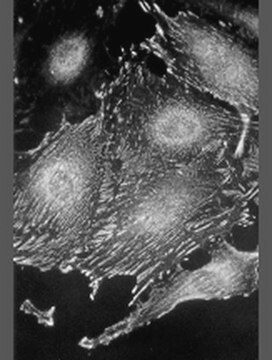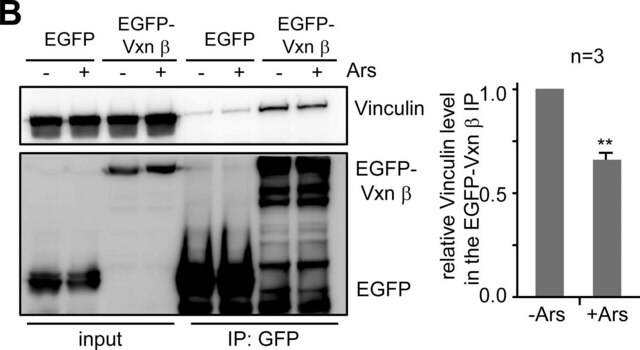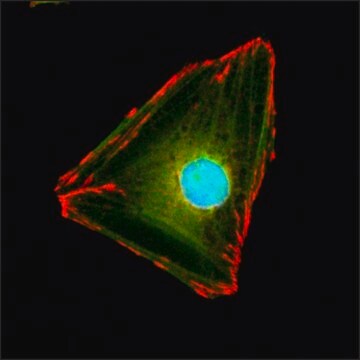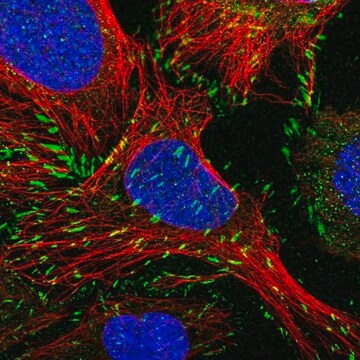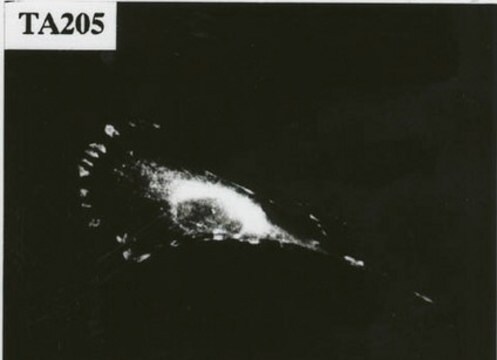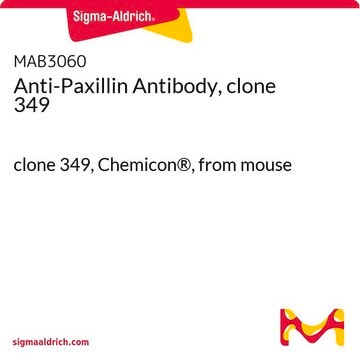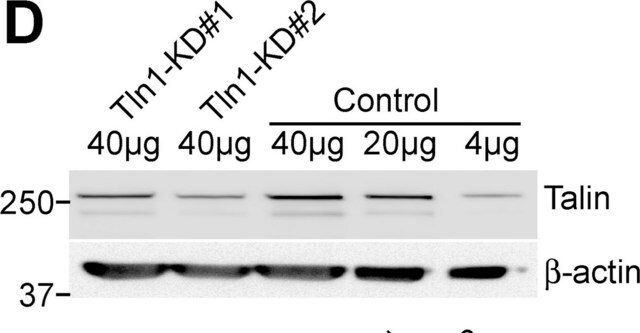SAB4502553
Anti-Paxillin antibody produced in rabbit
affinity isolated antibody
Synonym(s):
PAX-1, PAXI, Paired box protein Pax-1, paxillin, paxillin α
About This Item
IHC
WB
immunohistochemistry: 1:50-1:100
western blot: 1:500-1:1000
Recommended Products
biological source
rabbit
Quality Level
conjugate
unconjugated
antibody form
affinity isolated antibody
antibody product type
primary antibodies
clone
polyclonal
form
buffered aqueous solution
mol wt
antigen 64 kDa
species reactivity
rat, mouse, human
concentration
~1 mg/mL
technique(s)
ELISA: 1:20000
immunohistochemistry: 1:50-1:100
western blot: 1:500-1:1000
NCBI accession no.
UniProt accession no.
shipped in
wet ice
storage temp.
−20°C
target post-translational modification
unmodified
Gene Information
human ... PXN(5829)
General description
Immunogen
Immunogen Range: 85-134
Features and Benefits
Physical form
Disclaimer
Not finding the right product?
Try our Product Selector Tool.
Storage Class Code
10 - Combustible liquids
WGK
nwg
Flash Point(F)
Not applicable
Flash Point(C)
Not applicable
Choose from one of the most recent versions:
Certificates of Analysis (COA)
Don't see the Right Version?
If you require a particular version, you can look up a specific certificate by the Lot or Batch number.
Already Own This Product?
Find documentation for the products that you have recently purchased in the Document Library.
Articles
High titer lentiviral particles including beta-actin, alpha-tubulin and vimentin used for live cell analysis of cytoskeleton structure proteins.
Our team of scientists has experience in all areas of research including Life Science, Material Science, Chemical Synthesis, Chromatography, Analytical and many others.
Contact Technical Service